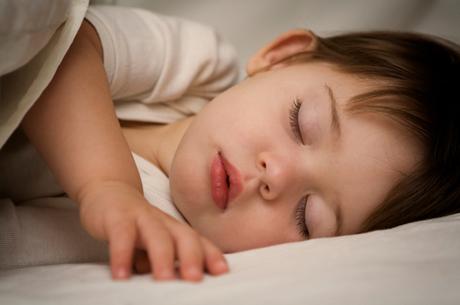
When our children have sleep issues it can be exhausting, affecting the whole family.
If they don’t get enough sleep, their behavior and mood can be affected. They may become hyperactive at night leading to drowsiness during the day. Sleep affects children’s ability to learn and function, and helps their bodies fight off illness.
Ultimately, sleep helps children to rest and restore their emotional wellbeing.
So, how much sleep do children need?
New guidelines published by the American Academy of Sleep Medicine have shone a light on this very issue.
The report concludes:
Sleeping the number of recommended hours on a
regular basis is associated with better health outcomes
including: improved attention, behavior, learning,
memory, emotional regulation, quality of life, and
mental and physical health.
Children need different amounts of sleep. The younger the child, the more sleep they need. But on average from about nine years old, a child will need 15 minutes less sleep for each year that they age.
The recommendations below provide a guide to how much sleep a child needs at different ages.
As no two children have identical sleep habits, the following are guidelines.
Recommended Sleep Times for Children
- Babies four to 12 months old should get 12 to 16 hours per 24 hours (including naps)
- Children one to two years old, 11 to 14 hours per 24 hours (including naps)
- Children three to five, 10 to 13 hours per 24 hours (including naps)
- Children six to 12 years old, nine to 12 hours
- Teenagers (13 to 18 years old), eight to 10 hours

Sleep Tips for Children
- A regular bedtime is a must. As Jessica Alexander of The Sleep Council says: “A bedtime ritual teaches the brain to become familiar with sleep times and wake times, It programmes the brain and internal body clock to get used to a set routine.”
- Difficult as it is, it’s important to keep TVs, games consoles, mobile phones and computers out of the bedroom. The blue light from gadgets can interfere with our sleep patterns by tricking us into thinking it’s still daylight. Never good when trying to convince your child that it’s sleep time!
- Too many sugary sweets and treats or eating too much or too little close to bedtime may prevent sleep onset or disrupt sleep. Try and limit how many treats children get – not just bad for sleep, but not good for their teeth either.
- Ensure a good sleep environment for your child. A bedroom that is dark, cool, quiet, safe and comfortable is important.
- It’s fair to say that none of us sleep well on an uncomfortable bed, and children are no different. Is your child’s bed giving them the proper support? Is it worn or soiled? Is it comfortable to sleep in? If you’re not sure, take the Sleep Council’s Bed M.O.T. to see whether it’s time for a new one.
- Children grow at a rapid rate and the bed they had when they were a toddler or tween may not be fit for purpose when they’re older. With lots of traditional and contemporary kids’ beds to choose from, take your child with you when you’re buying a new bed to check its suitability.

What to do next
If you are worried about your child’s sleep it may be helpful to talk to your Health Visitor or GP regarding your concerns. At Dalzell’s of Markethill our Sleep Academy Trained Staff are on-hand to advise on any sleep needs you or your family have. Visit us in-store, call 028 3755 1260, email to see our great range of children’s beds. A short drive from Belfast and conveniently located between Armagh and Newry, we’ve over 500 beds in stock with lots to see and try before you buy. What’s more, we provide a Free Collection and Recycling of Your Old Bed service and Free Delivery of your New Bed throughout our Free Delivery Zone, which extends across Northern Ireland, and Counties Louth, Monaghan and Dublin, in the rest of Ireland.


